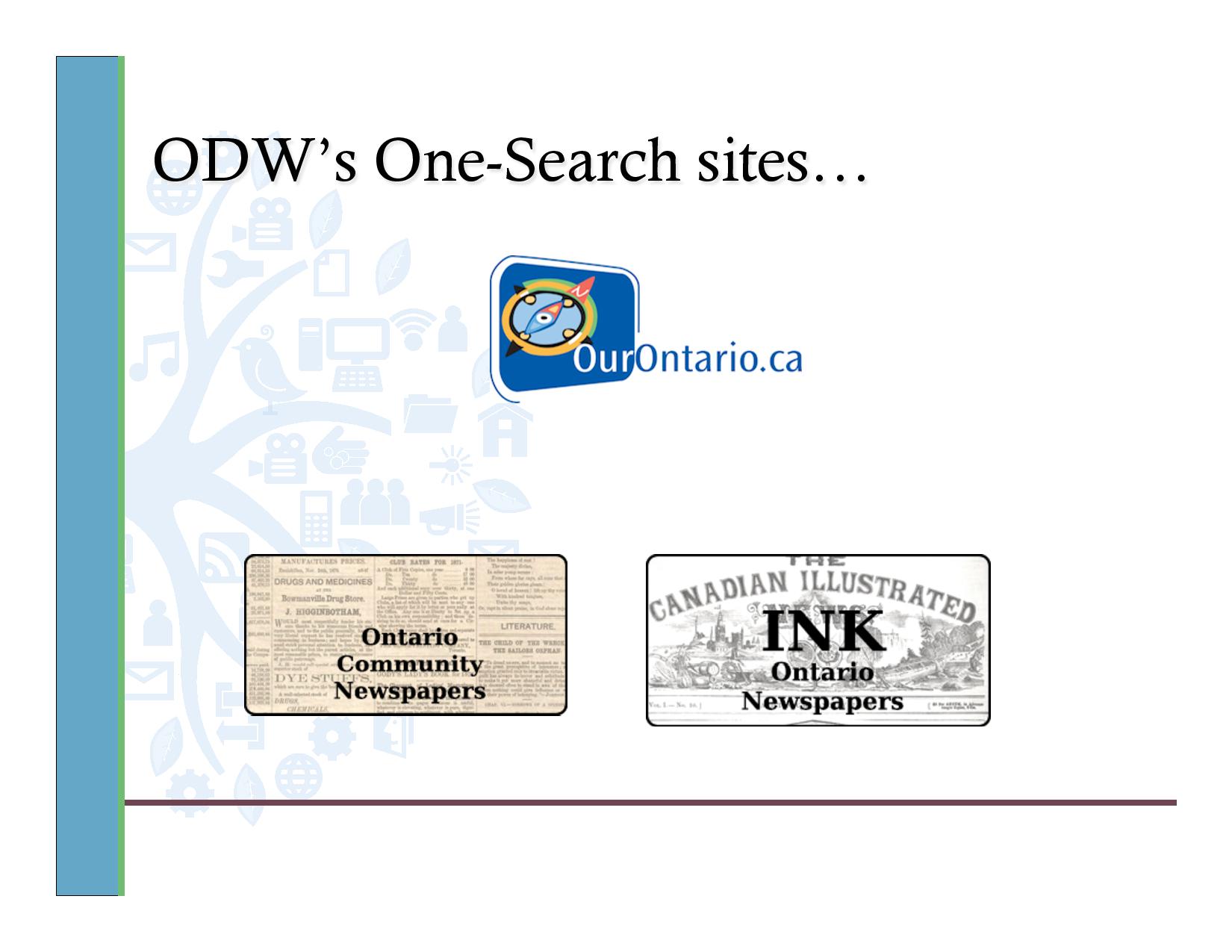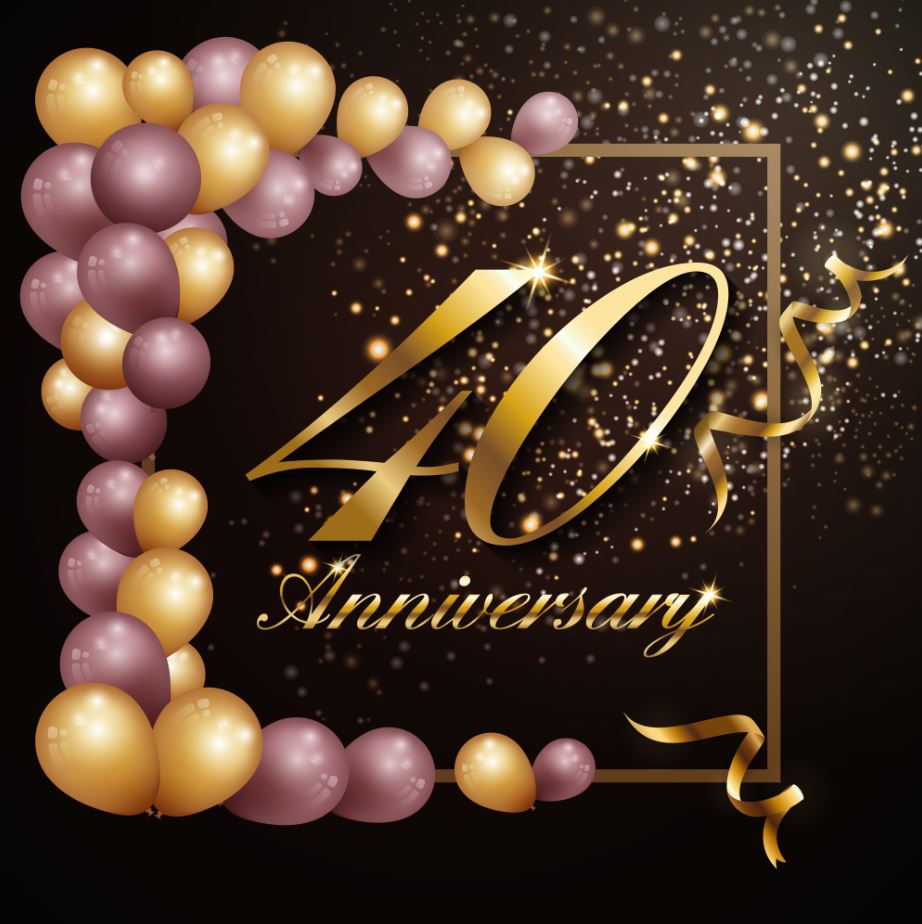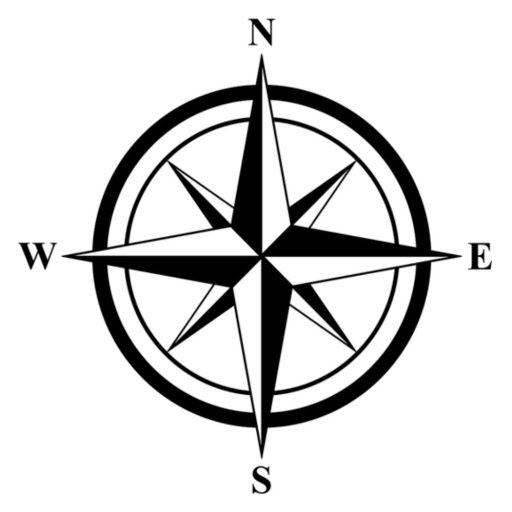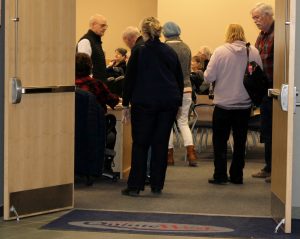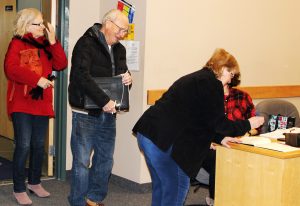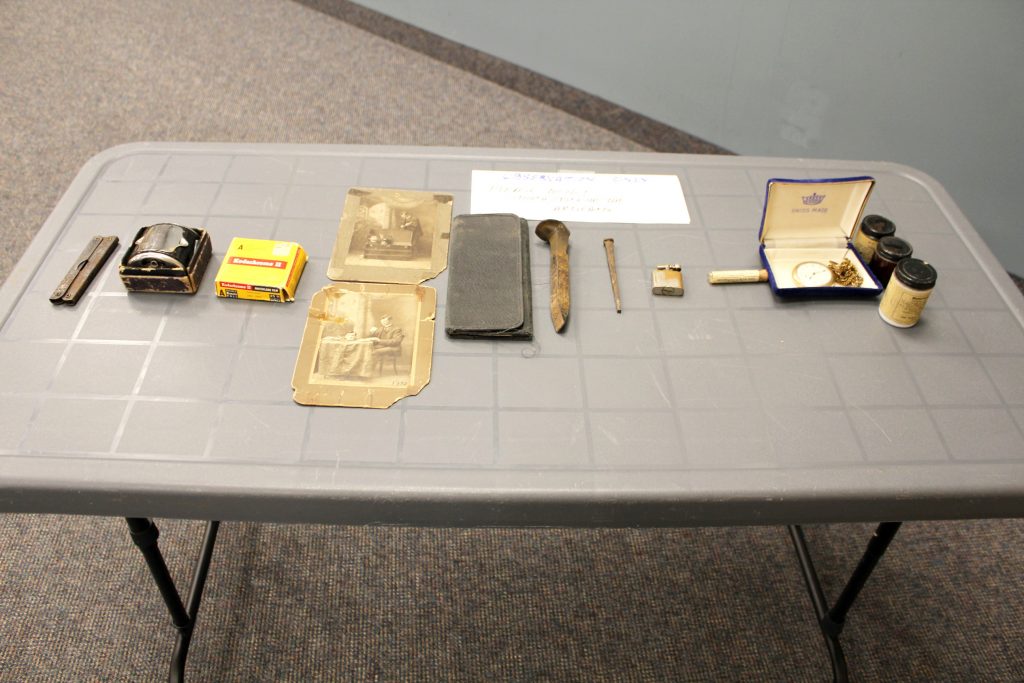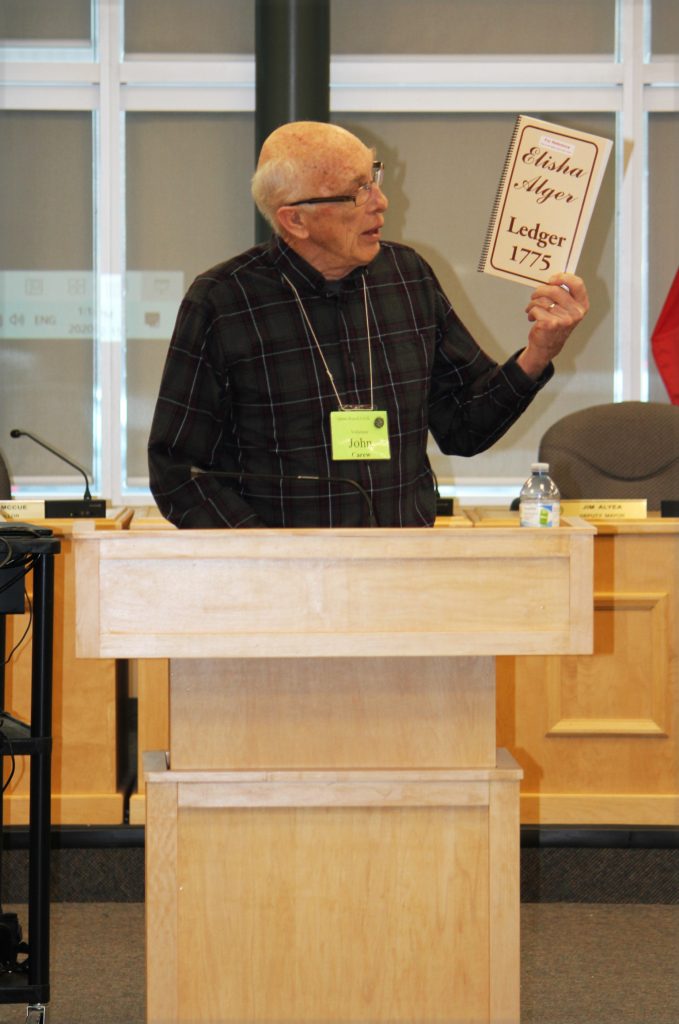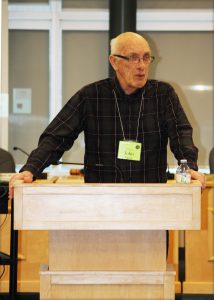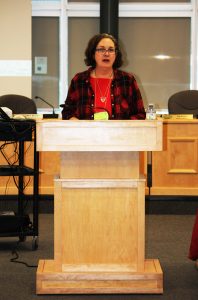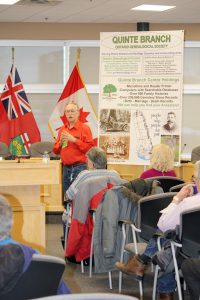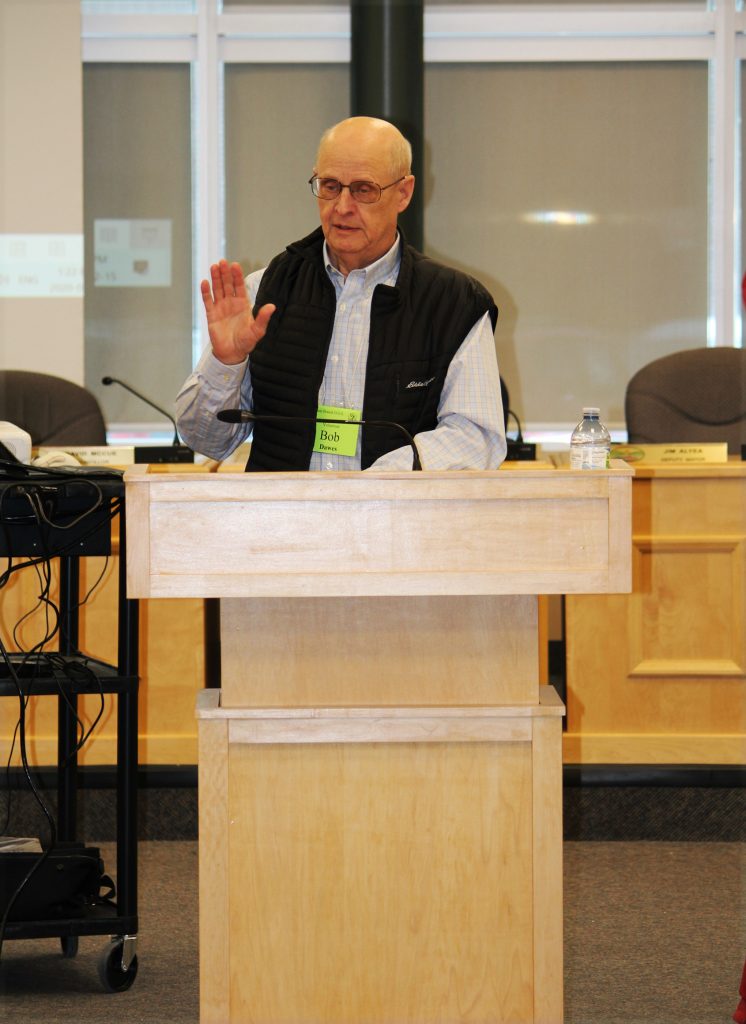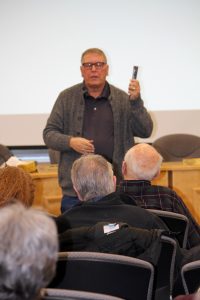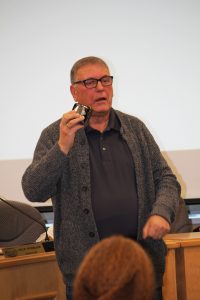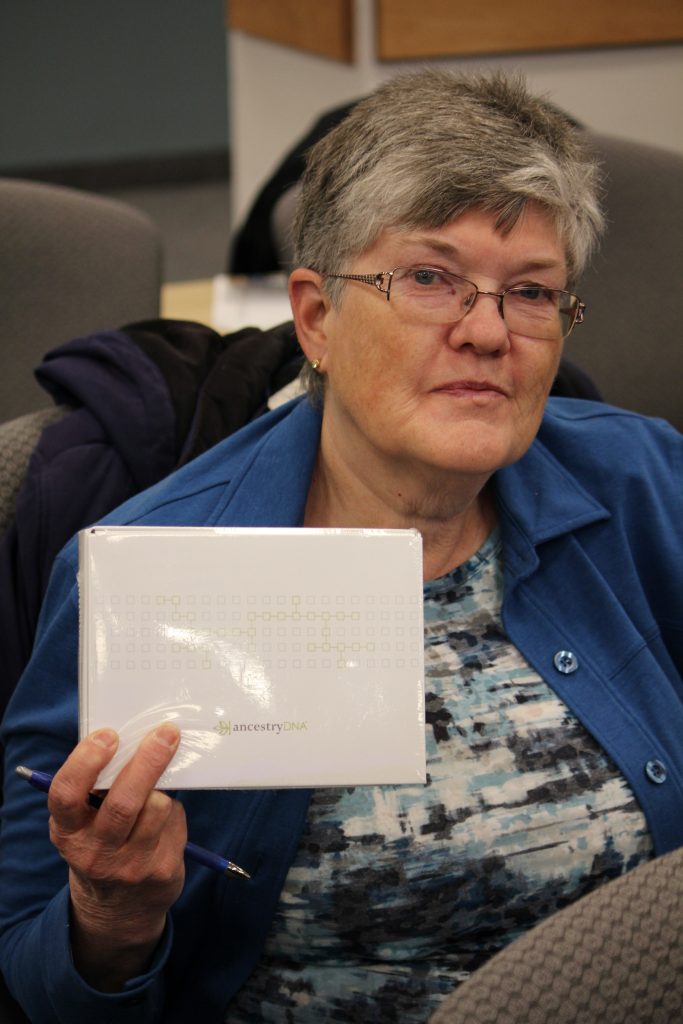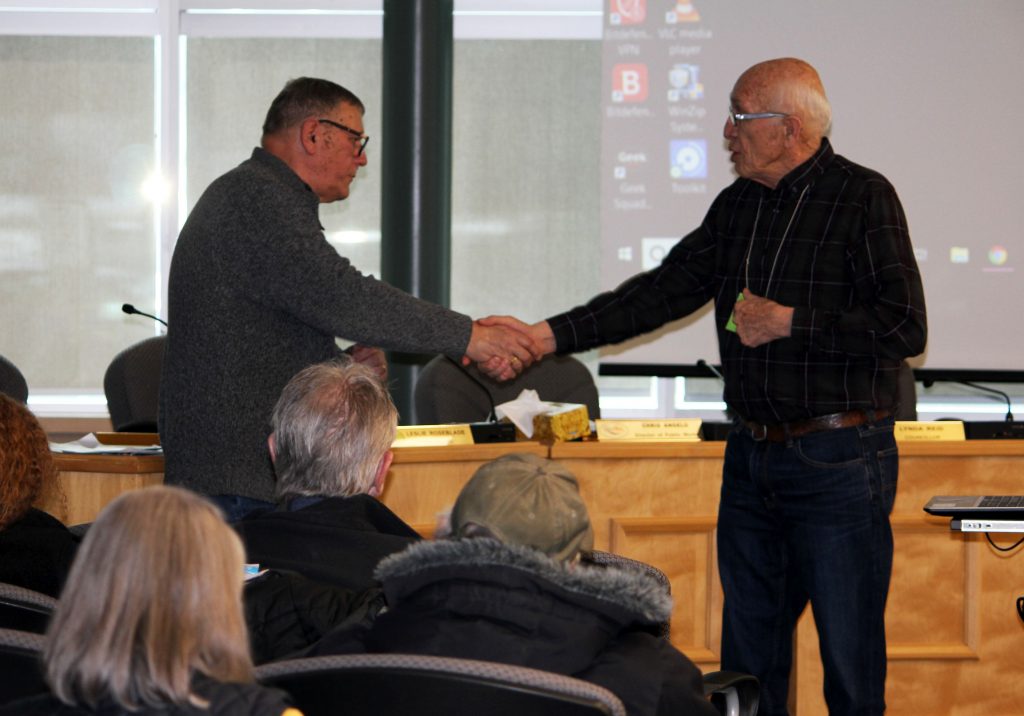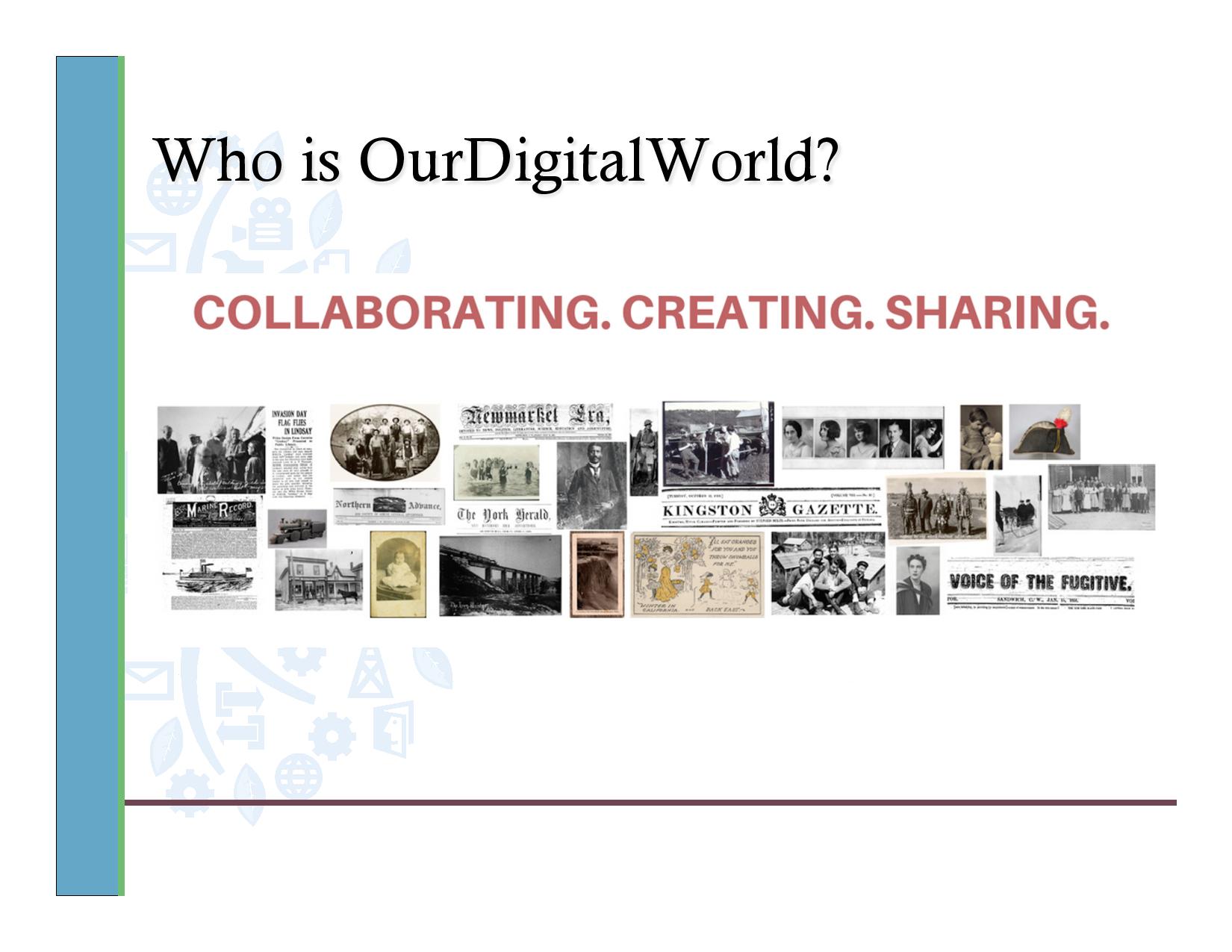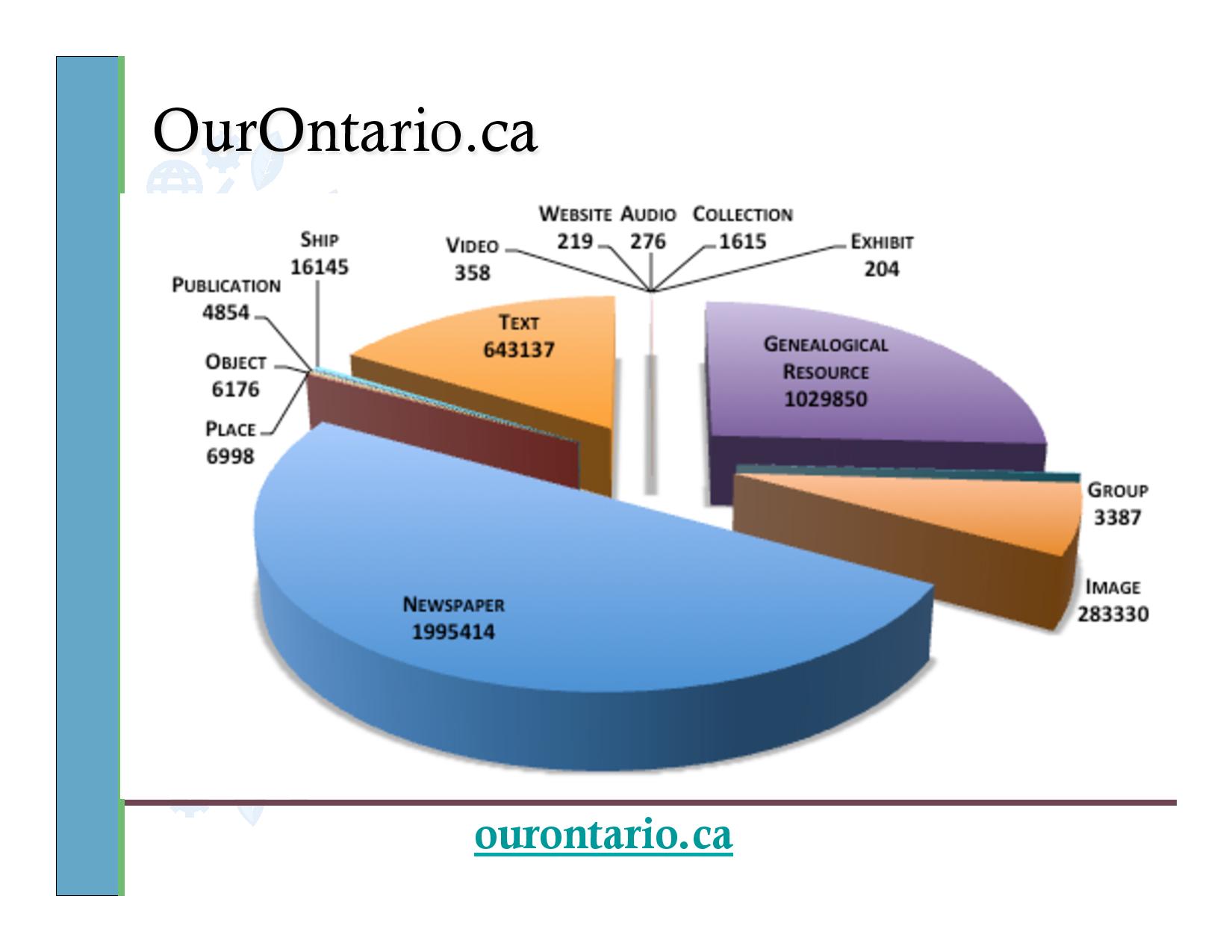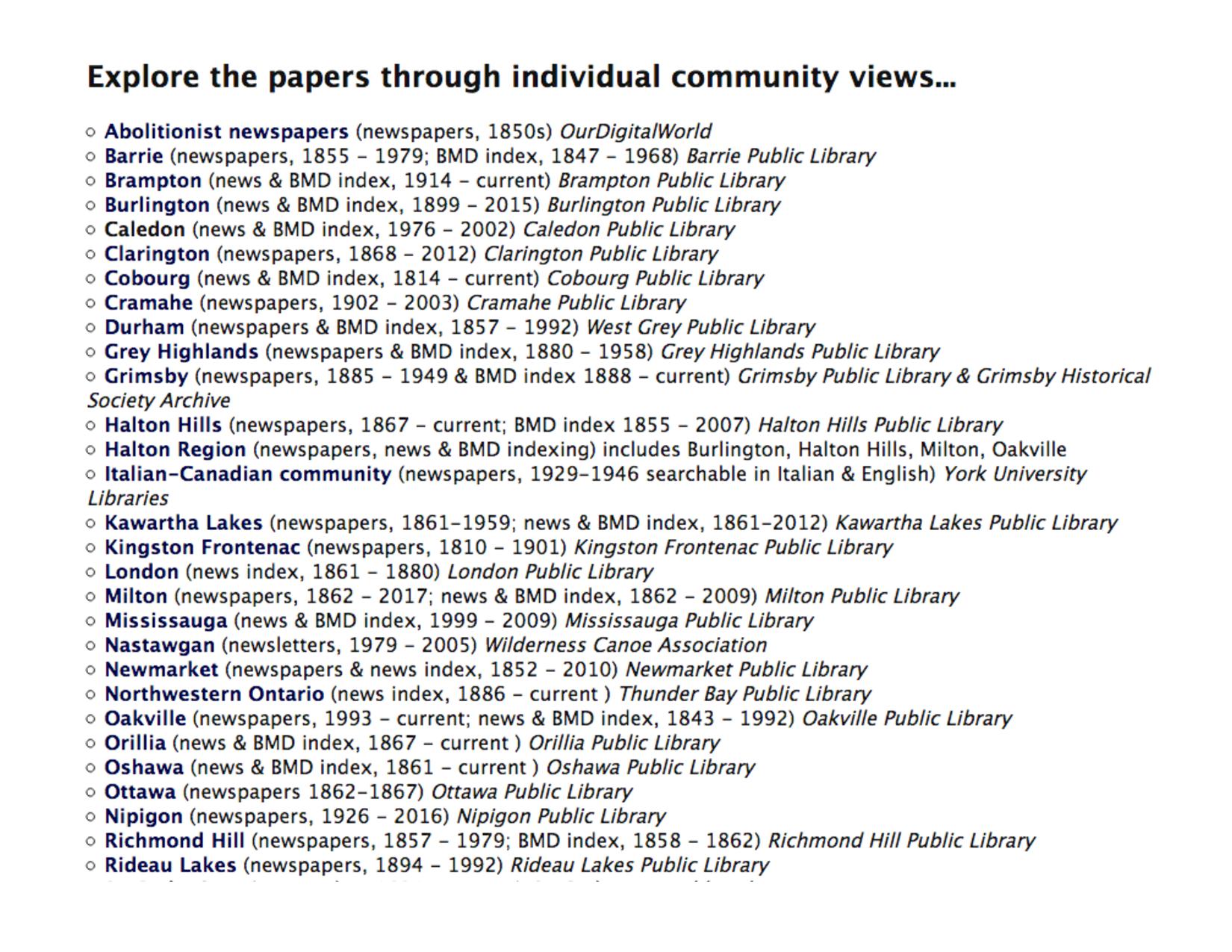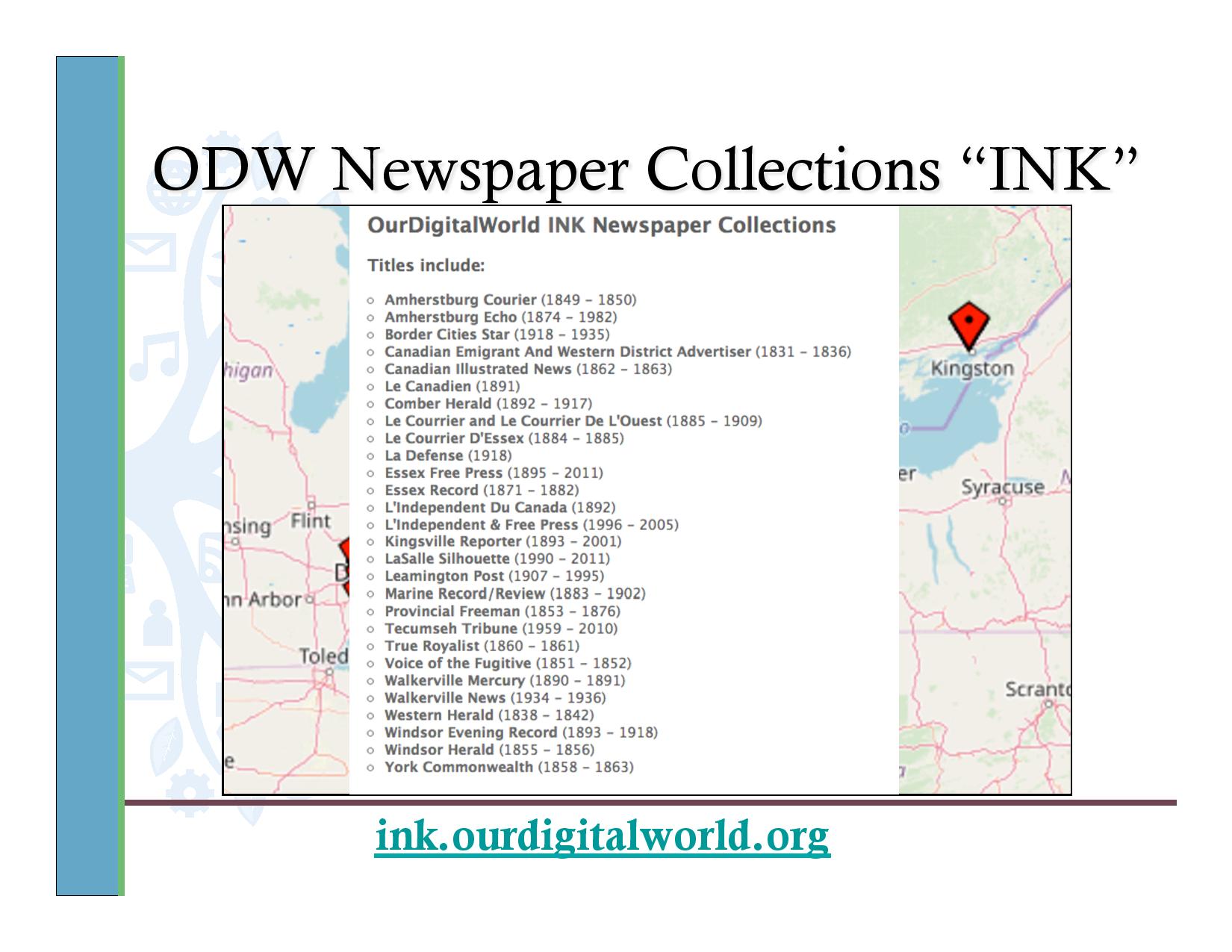[ditty_news_ticker id=”8941″]
Quinte Branch News
“Forty Years … Supporting the Geneology Community”
2020 | 2019 | 2018 | 2017 | 2016 | 2015 | 2014
2012-2013 | 2011-2012 | 2010-2011 | 2009-2010
2008-2009 | 2007-2008 | 2006-2007 | 2005-2006
- The Ins and Outs of FamilySearch
- Researching Early Quakers in Upper Canada
- Expanding Your Research Through Online Newspapers
The Ins and Outs of FamilySearch.org
Presentation by Nick Post
Article by John Carew
Photography by Wayne Wickson
Nick Post took on a big task for a Saturday afternoon genealogy lecture: he explained how FamilySearch came about and highlighted the benefits of using it. He took the group through signing in to the program and discussed the different areas within the site; providing examples from his own Family Tree. Nick also outlined partnerships with other Family History sites, indexing and additional programs. Finally, he discussed updates and future changes coming to FamilySearch. He is a “Temple and Family History Consultant” at the Oshawa Stake Family History Library.
For most if not everyone in the room, Nick’s presentation was twofold: a refresher about the “family search” site that we have used over the years, and a catchup on the innovations of convenience and enhanced research features that have blossomed forth in recent times. We would have expected that the focus of the presentation would be zeroed in on FamilySearch.org, but in a very significant way it left the door open for a more global and collegial view of the opportunities for us to pursue our research objectives. The Family History Guide, released this year by The Family History Guide Association at www.thefhguide.com , offers a very generous review of FamilySearch, Ancestry, My Heritage and Find My Past, in the context of how to look at each site for the opportunities we may be looking for or trying to expand into.
No doubt, we are very much at the crossroads of the technology and information ages, and all you need to do to take advantage of this lecture by Nick Post, whether you were there or not, is to visit The Family History Guide Association and educate yourself online at www.thefhguide.com , and similarly at the four websites of the genealogy enterprises featured, Family Search, Ancestry, My Heritage and Find My Past to get their take on opportunities directly. And don’t stop there! Take this moment to review what is going on at websites and organizations that might be the right locations for you to visit again some time.
|
|
|
|
|
|
|
|
|
|
|
|
|
NICK’S MYSTERY OBJECTS
|
|
|
|
|
|
|
NICK POST’S GENEALOGY LINKS
Family History Centre – Trenton Ontario
– – – – – – – – –
Researching Early Quakers in Upper Canada
Presentation by Randy Saylor
Article by John Carew
We started 2020 with aspirational objectives of several high-quality presentations leading to our 40th Anniversary Branch celebration scheduled for June 20, 2020. That would have been an ideal shot at the moon if we were playing darts. After the great snow of January (cancel the Crouse Wanamaker presentation), we had a very nice reprieve in February with Nick Post talking about FamilySearch.org. A three-month snow storm in March, April and May would have been much better than what transpired, but we were not that lucky. The Coronavirus and the consequential Covid-19 Pandemic scuttled the balance of our Quinte Branch 2020 public meetings and presentations! During the forced holiday (stay at home, Quinte style) the Council had virtual meetings using Microsoft Teams, Zoom and telephones when our tech skills failed us. Somebody said at one of the meetings “they’ll probably make a movie out of this craziness”. Then we phoned Randy. In case you are wondering, Randy Saylor is Peter Johnson’s cousin, Linda Smith’s cousin, and my wife Susan’s cousin. If that isn’t enough, he is a great genealogist and a past-master webmaster.Randy was born in Trenton and has lived with his family in Toronto since university. He retired as a High School Principal nearly 20 years ago. Like many genealogists he seems to have had the bug early in life and started his own Quinte based web site in 2005. His interest centers around the social life of the times of the ordinary folk who made up the majority of the early settlers.In quick order, Randy volunteered to be our first-ever virtual presenter, a team of under paid and over worked Quinte Branch volunteers with help from OGS put the package together, and on June 20th, we held our first online Branch Meeting, starring Randy Saylor and the Quakers. Success!Randy gave some Quaker history background and commented on their settlement in the Quinte area starting in the early 1790’s. The main theme of his presentation however was on the structure of the Quaker community and how this impacts the many interconnected Quaker records that have survived both in the United States and Canada. Understanding the hierarchy of Quaker meetings and their relevance to Quaker life gives a researcher a better ability to find records of interest. Quakers kept minute books, marriage, birth and some death registers plus removal records when families changed their locale. These amazing records are very helpful to genealogists. Randy also outlined where various records can be found, online and otherwise.
Research Notes and Hints (from Randy Saylor)
Quaker Resource Guide
Prepared for the Quinte Branch OGS 20 June 2020 Webinar
by Randy Saylor
Check out Randy’s web site at the URL linked below:
http://freepages.rootsweb.com/~saylormowbray/genealogy/
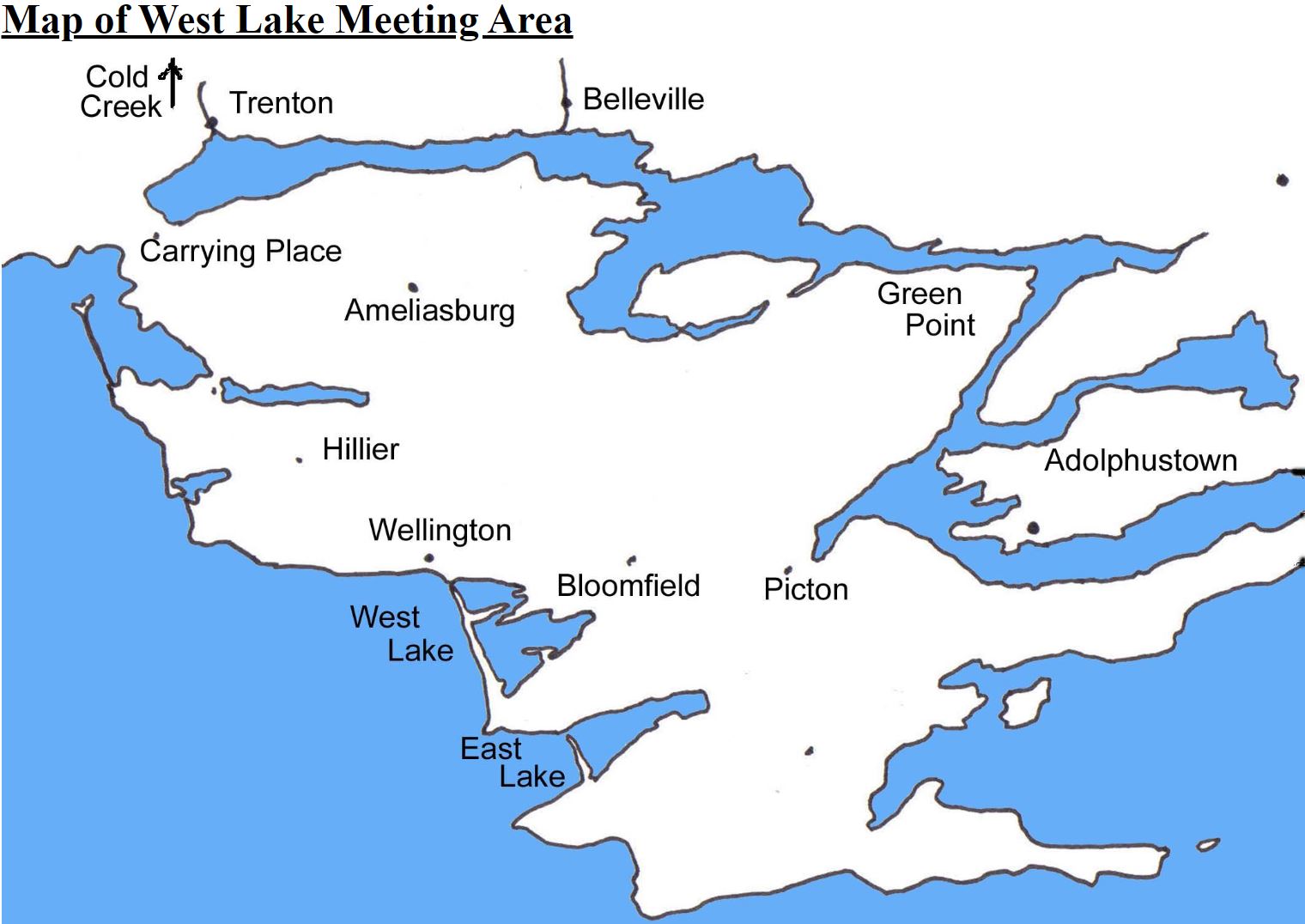
Members of the Society of Friends, commonly called Quakers, arrived in Upper Canada before 1800 from both New York, Vermont, New Jersey and Pennsylvania and settled in pockets where they could purchase excellent farmland – Prince Edward County, Niagara area, north and east of Toronto and along the north shore of Lake Erie. They left a rich record in their minute books, registers and other ephemera for both the genealogist and social historian.
Canadian Friends Historical Association (CFHA) since 1972
The CFHA is an active association that has become known for a large number of transcribed minute books, registers, journals, research as well as past Newsletters and Journals. These are available free on the website.
In 1974 the Canadian minute books held at the Archives were microfilmed. A list of these microfilms was published in the CFHA Newsletter #13. Many of them have been transcribed on CFHA.
CFHA holds an annual conference each September. The website has an active blog.
Maps and Charts of Canada, NY and Philadelphia Yearly Meetings
CFHA has prepared a pdf of the map and charts done by Arthur Dorland in 1927 and they are included as endnotes in his book, A History of the Society of Friends (Quakers) in Canada. A few links to other maps are provided as well.
https://cfha.info/QuakerMapsCharts.pdf
Quaker Archives and Library of Canada
The Quaker Archives is at Pickering College, Newmarket, ON, and is the undoubted major repository of Canadian Quaker Records. The credit goes to Arthur Garratt Dorland, Quaker, history professor at the University of Western Ontario, who from the 1920’s onward collected old minute books, registers, religious and history books, scholarly journals, personal journals (Timothy Rogers), letters and much else. The Dorland Reference Library at the college honours his role. Most of the registers and minute books have been microfilmed and these films are available at the Archives of Ontario and on Ancestry.com. The Marion Cronk Fonds has a lot of Quinte area material and the finding aid is on the website.
The website has a catalogue of holdings, a genealogical index, finding aid to the Marion Cronk Fonds and a number of other indexes of their holdings. The microfilms done at that time are now on Ancestry.com. A name index has been created. Searching the books that have been transcribed at CFHA gives an easier to read background to the event.
Ancestry.com
Researchers with a paid account at Ancestry will recently find 76 Quaker collection titles in the Card Catalogue searching with the keyword being “Quaker.” The Library edition only yields 14 titles.
Here are three major ones.
1. U.S. and Canada, Quaker Yearly Meeting Annual Reports, 1808-1930
This database contains hundreds of volumes of minutes from Yearly Meetings, which is the highest administrative level of the Religious Society of Friends (Quakers). The records span more than a century and come from more than 20 different Yearly Meetings including the following: Baltimore, California, Canada, Genesee, Central, Green Plain, Illinois, Indiana, Iowa, Kansas, London, Nebraska, New England, New York, New Zealand, North Carolina, Ohio, Oregon, Pennsylvania, Philadelphia, South Africa, Western (Indiana), Wilmington.
The minutes contain names of representatives and committee members, memorials and obituary notices, along with business news.
This collection is available for browsing only and contains no indexed records.
2. Canada, Quaker Meeting Records, 1786-1988
See CFHA Newsletter 13 for a complete list of the books that were filmed. This database contains records from various Quaker meetings in Canada. Most come from Ontario, but you will also find records from other provinces, as well as a few from areas in the United States that fell under jurisdiction of a Canadian Yearly meeting.
3. U.S., Quaker Meeting Records, 1681-1935
This database contains Quaker monthly meeting records which are archived at the following Quaker colleges: Earlham (Indiana), Guilford (North Carolina), Haverford and Swarthmore (Pennsylvania).
Notably absent are the New England and Philadelphia Yearly meeting minute books which will be available soon with a membership at Find My Past.
Archives of Ontario
http://www.archives.gov.on.ca/en/index.aspx
- Religious Society of Friends Papers, F 997, MS 303, 59 reels, Private Records. The finding aid is with the yellow binders listings all the meeting records that were in the possession of the Quaker Archives in 1975. A few have been acquired since and are not filmed. This finding aid is available online in the 1975 Newsletter #13. http://www.cfha.info/newsletter13.pdf
- The blue card index lists about 20 holdings, mostly letters that have Quaker references. Search under Friends, society. There are a few Yonge St records.
- Rachel Cronk Fonds – F550, MU759 Robarts Library, University of Toronto
The library has several shelves of Quaker books. Many histories and also 19th C religious books. Most importantly it has a complete bound set of the Quaker History published by the Friends Historical Assoc, Haverford, PA. Volumes 1 (1906) to recent volumes. Search the Robarts web site to see the holdings. https://onesearch.library.utoronto.ca/
Toronto Public Libraries
Encyclopedia of American Quaker Genealogy, Wm Wade Hinshaw, 1936 and later, 6 Vols. Vol 1 – North Carolina; Vol 2 – Penna and New Jersey (Salem, Burlington, Philadelphia, Falls); Vol 3 – New York (Flushing, Westbury, Jericho), Vol 4 and 5 – Ohio; Vol 6 – Virginia. This is a major index to some of the records of the Monthly Meetings.
Library & Archives of Canada, Ottawa
List of the archives of the Religious Society of Friends (Quakers) in Canada: microfilmed by the Archives of Ontario (MS303) / prepared by R. Nickerson . CD 3649 O5 N63 1975
Suggested Books – available in many libraries
- A History of the Society of Friends (Quakers) in Canada, Arthur Dorland, 1927, [updated in 1968 to reflect the Quaker reunion of 1955.] Available on Ancestry.com
- From Quaker to Upper Canadian: faith and community among Yonge Street Friends, 1801-1850, Robynne Rogers Healey, Publisher Montreal; Ithaca: McGill-Queen’s University Press, 2006
- Children of Peace, John McIntyre, McGill Queen’s Press, 1994
- Quaker Crosscurrents: three hundred Years of Friends in the New York Yearly Meeting, Hugh Barbour, Arthur Worrall, and Christopher Densmore, 1995, Robarts Library BX 7607.N5 Q34. Available on Google Books. Highly recommended.
- Quakers in Colonial North East, Arthur Worrall, 1980, 289.674 W59 [Robarts BX 7639.W67].
- The Hicksite Separation, Robert Doherty, 1967, 289.609 D57, [Robarts BX 7637 D6]. A fine account of the difficult to understand separation.
- Families, OGS, Vol 19, No. 1, 1980, two excellent articles by James Zavitz and Jane Zavitz about Quaker history and using Quaker records.
- Quaker Marriages in Upper Canada, Wm Riddell, OHS Papers and Records, 1927, V24, 507-11. The legal issues behind the acceptance of Quaker marriages.
US Quaker Records
- Swarthmore, Haverford and Bryn Mawr Colleges hold the major collections of Quaker records. They have joined forces to present their digital offerings on this Triptych web site. http://triptych.brynmawr.edu/
- Not everything is on line so see this Tricollege Library web site to search their catalogues. Enter your search word and then select a result of interest. On the new page click on “Collection Organization” for detailed list of holdings. Scroll down through them. a. http://archives.tricolib.brynmawr.edu/
Or visit each College archival web site separately. a. https://www.swarthmore.edu/friends-historical-library - https://www.haverford.edu/library/quaker-special-collections
- https://www.brynmawr.edu/lits/libraries-collections/special-collections
- At Swarthmore, see the James E. Hazard Index of The Records of New York Yearly Meeting of the Religious Society of Friends. This will replace Hinshaw as the index for NY records as it is more complete. http://www.swarthmore.edu/Library/friends/hazard/
Other web sites – Google the following:
- Volumes of The Friend, A Religious and Literary Journal, at times published weekly, from the early 19th C are packed with genealogical information such as obituaries. These volumes often surface in google books during searches.
- Friends Historical Association – publishes the American scholarly journal Quaker History. http://www.quakerhistory.org/
- New York Yearly Meeting Microfilm Collection (NYSL) – a list of NY meeting records that have survived. http://www.nysl.nysed.gov/library/guides/nyym12.htm
- Records of the Philadelphia Yearly Meeting. For example, Muncy Meeting. http://archives.tricolib.brynmawr.edu/resources/phpennsmm
- Earlham School of Religion – 17 and 18thC Quaker books online. https://esr.earlham.edu/dqc/
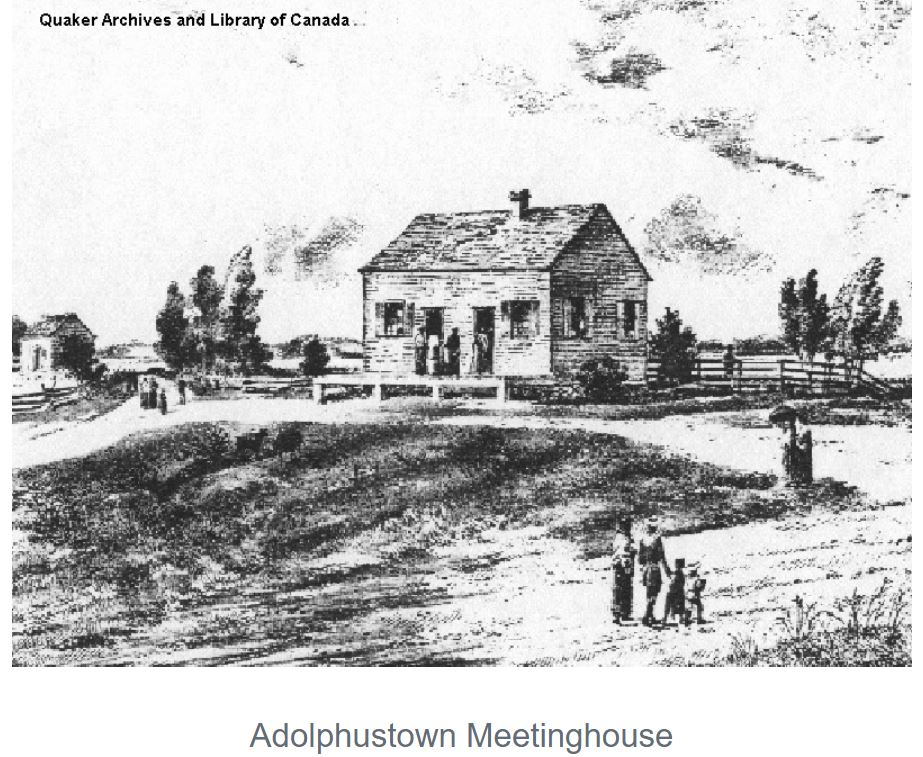
Finding Your Family History with Online Newspapers
Presentation by Jess Posgate
Article by John Carew
